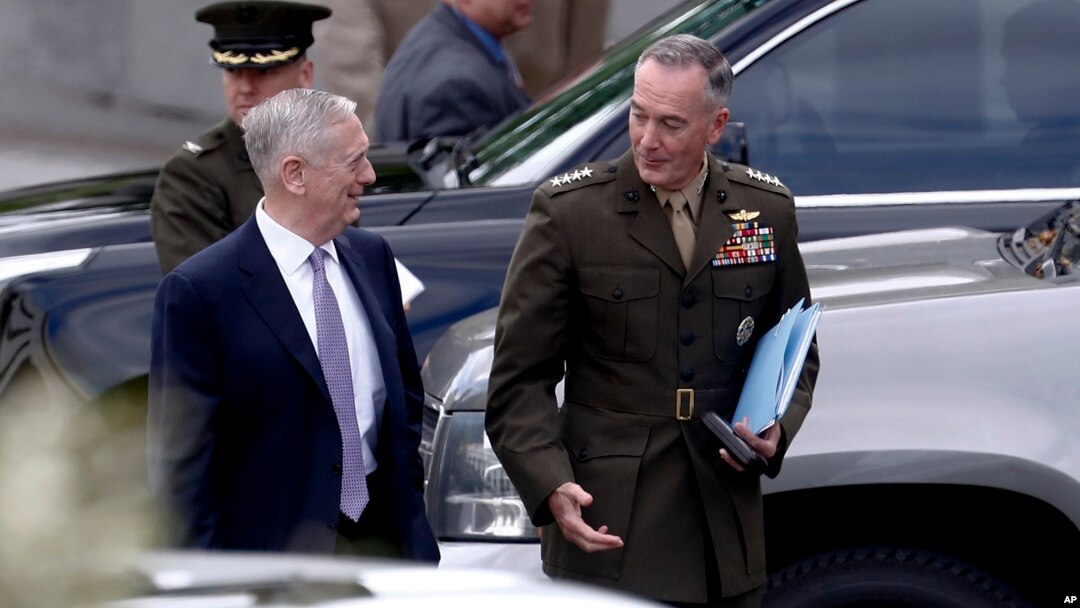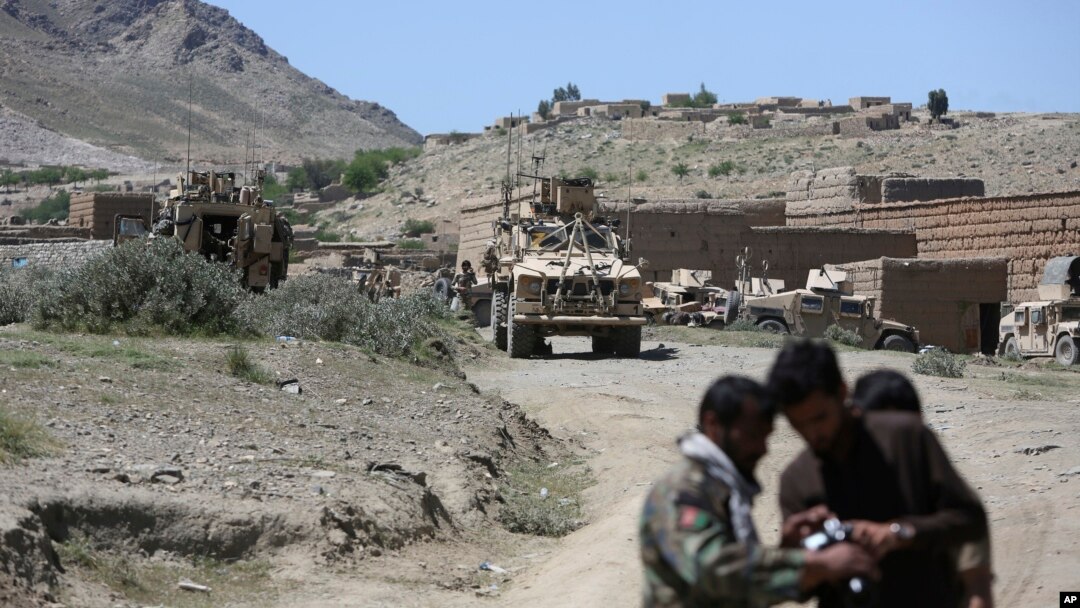It has been three months since the top commander of U.S. and international forces in Afghanistan said he needed a few thousand more troops to break a stalemate in the war-torn country, and the Trump administration has yet to announce its policy plans.
White House Press Secretary Sean Spicer said this week that no decision has been made, and he urged reporters not to “get ahead” of the policymaking process.
Military officials told VOA that policy plans could include sending a few thousand more international troops to Afghanistan.

Defense Secretary Jim Mattis and Joint Chiefs Chairman Gen. Joseph Dunford talks as they walk from an all Senators briefing on the situation in the Koreas, April 26, 2017, at the Eisenhower Executive Office Building on the White House complex in Washington.
The number of troops that the United States will add to the fight in Afghanistan will depend on how many additional forces NATO supplies to expand the battle against terrorists there, Marine General Joseph Dunford, chairman of the Joint Chiefs of Staff, said in Israel Tuesday.
Afghan defense plan
Officials told VOA that President Donald Trump has not yet been briefed on an Afghanistan defense plan, but experts said plans are expected to be discussed later this month.
Thomas Spoehr, director of the Heritage Foundation’s Center for National Defense, said he expects the new administration’s policy will rely on an increase in international forces to focus on long-term goals.
“This time we are directly enabling the Afghan army, so we’re trying to make that army more powerful, so it’s a different thrust than what we did in the past,” Spoehr told VOA.
Your browser doesn’t support HTML5
US Afghan Policy Not Decided Yet
U.S. officials said the administration’s developing policy would focus less on the international troop numbers needed and more on providing resources for increased Afghan air power and special forces.
Others argue that a potential increase of international forces won’t be enough to have an immediate effect on the Afghan battlefield.
“The intelligence community assesses that the political and security situation in Afghanistan will almost certainly deteriorate through 2018, even with a modest increase in military assistance by the United States and its partners,” Daniel Coats, the director of national intelligence, told the Senate Intelligence Committee Thursday.
Gaining territory
The Taliban now holds more physical territory in Afghanistan than at any time since 2001, but some within the Trump administration believe more military pressure could be a means to force the Taliban to the negotiating table with the government.
Critics in Washington have bashed the Afghan military’s stalemate with the Taliban, a fight tied to international troops’ advise-and-assist mission in the country. But General Raymond Thomas, the head of U.S. Special Forces Command, reinforced the success of America’s counterterror mission there.
“The one objective we had for why we went there in the first place, that we’ve accomplished over the last 15½ years, is the avoidance of another attack from that area, and that certainly is an accomplishment and something that we need to reinforce going forward,” Thomas said.
FILE - Afghan security forces take position during a gun battle between Taliban and Afghan security forces in Laghman province, Afghanistan, March 1, 2017.
The importance of the counterterror mission has increased since Islamic State fighters moved into the country.
That, coupled with supporting a long-term Afghan fight against the Taliban, leads many experts to believe that unlike the Obama administration, Trump’s policy will not set timelines and troop boundaries.
“The fact is there’s no imminent American departure. President Trump is not looking to leave,” Michael O’Hanlon, a senior fellow at the Brookings Institution, told VOA.


